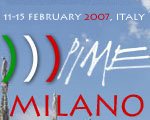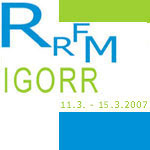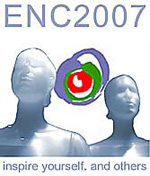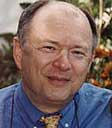 |
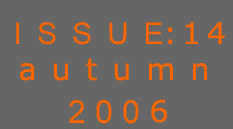 |
Issue No.14 Autumn
|
| ENS News |
| ENS Events |
| Member Societies & Corporate Members |
| ITER, a major step toward nuclear fusion energy Reactor Kinetics Equations applied to the start-up phase of a Ringhals PWR SCK•CEN: A centre of scientific excellence Interview of Eric van Walle, new Head of SCK-CEN A “humanising” process: Making
science stimulating and relevant to young people |
| European Institutions |
| European Commission outlines Joint Undertaking proposal on ITER |
| ENS World News |
ENS Members |
| Links to ENS Member
Societies Links to ENS Corporate Members Editorial staff ______________________ |
| _____________________ |
| _____________________ |
| _____________________ |
| _____________________ |
|
|
|
|
The Annual General Conference usually starts with a few administrative matters, such as the election of officers – including that of a new president (on this occasion a South African) - and the accession of new member countries - Malawi, Montenegro, Mozambique and Palau. And this year was no exception. After the points of order, the Director General made his traditional opening statement. After a few more administrative matters were settled, such as the budget, each country then made a short statement. |
In parallel with the main meeting, the so-called 'Committee of the Whole' began drafting and discussing proposals for resolutions to be adapted by the General Assembly at the end of the conference. This part of the proceedings was both highly technical and political.
Not surprisingly, the statements frequently addressed the issue of security of fuel supply and hinted at the ongoing situation in Iran. Both issues are, of course, closely related. The issue of security of supply was the subject of a 'special event' organised in parallel.
Director General Mohammed ElBaradei gave an overview
of the Agency’s different areas of competence. The full
text of his statement is available at:
www.iaea.or.at/About/Policy/GC/GC50/Statements/index.html
On the subject of Iran, the Director General stated that:
"The implementation of the NPT safeguards agreement in the Islamic Republic of Iran has been on the agenda of the Board for more than three years and lately also on the agenda of the United Nations Security Council. On 31 July 2006, the Security Council adopted resolution 1696, in which it called upon Iran to take the steps required ... and the reestablishment by Iran of full and sustained suspension of all its enrichment related and reprocessing activities. In my report of 31 August to the Board and to the Security Council, regarding Iran's fulfilment of the requirements of that resolution, I stated that Iran had not suspended its enrichment related activities, nor was the Agency able to make progress on resolving the outstanding issues, due to the absence of the necessary transparency on the part of Iran. ... I remain hopeful that, through the ongoing dialogue between Iran and its European and other partners, the conditions will be created to engage in a long overdue negotiation that aims to achieve a comprehensive settlement that, on the one hand, would address the international community's concerns about the peaceful nature of Iran's nuclear programme, while on the other hand addressing Iran's economic, political and security concerns."
With regards to the nuclear fuel cycle, Mr. ElBaradei added: "The increase in global energy demand is driving a potential expansion in the use of nuclear energy. And concern is mounting regarding the proliferation risks created by the further spread of sensitive nuclear technology, such as uranium enrichment and spent fuel reprocessing. The convergence of the above realities points to the need for the development of a new framework for the nuclear fuel cycle.
I have been calling since 2004 for the development of a new, multilateral approach to the nuclear fuel cycle, as a key measure to strengthen non-proliferation and cope with the expected expansion of nuclear power use. The establishment of a framework that is equitable and accessible to all users of nuclear energy acting in accordance with agreed nuclear non-proliferation norms will certainly be a complex endeavour, and therefore in my view will be best addressed through a series of progressive phases:
-
The first phase would establish mechanisms for assurance of supply of fuel for nuclear power plants
-
The second phase would develop, as needed, assurances regarding the acquisition of nuclear power reactors
-
The third phase would facilitate the conversion of existing enrichment and reprocessing facilities from national to multilateral operations, and would encourage limiting future enrichment and reprocessing to multilateral operations."
The US was, in my opinion, remarkably discreet about Iran. The only reference they made to it was:
"The defiance and violations of Iran and North Korea, and the risk of catastrophic nuclear terror, must be addressed." However, the issues of terrorism and potential proliferation were a constantly repeated concern in their statement. With respect to security of supply, the US recalled their commitment to "encouraging reliable access to nuclear fuel for countries that forgo uranium enrichment and reprocessing activities..."
The Iranian delegation did not directly mention the US, but its allusion to the US was obvious in sentences such as '...the approach and behaviour of certain nuclear weapons states...' Iran holds the states that possess nuclear weapons responsible for the failure of the last NPT conference. It strongly argued against a monopoly on enrichment and fuel production by developed states and vehemently protested against the limiting of their country’s inalienable rights to access to peaceful nuclear capabilities. Iran claims that the decision to refer Iran to the Security Council is illegal. The statement ended with a number of declarations, including: 'the Islamic Republic of Iran's intentions are exclusively peaceful” and “..the Islamic Republic of Iran is against nuclear weapons and is seeking the total elimination of nuclear weapons in the region and the world accordingly.”
Let me conclude this summary by including an excerpt from the statement made by the Holy See, founding members of the IAEA (but not a member yet of the ENS!): "The truth of peace requires that all governments –those that openly or secretly possess nuclear arms or those planning to acquire them – agree to change course by making clear and firm decisions and by striving for a progressive and concerted nuclear disarmament".
Frank Deconinck
Back from Vienna (Bertrand Barré)
|
IAEA, the International Atomic Energy Agency, recognizes INSC as a non-governmental organization (NGO). Member societies ANS and ENS, as well as the INEA (International Nuclear Energy Academy) enjoy the same status. As an NGO, INSC is invited to send one delegate and a few observers to attend the Annual General Conference (GC) of the Agency, which is traditionally held during the third week of September. Now that I am back from Vienna, allow me to share with you my personal thoughts on the conference. |
This year, the IAEA celebrated both its 50th Anniversary and the Nobel Peace Prize that was won jointly by the Agency and its Director General, Mohammed ElBaradei. Even in a “normal” year, the GC is a very formal event, with a delegation from each country delivering a prepared speech in a vast auditorium. These speeches usually contain few surprises, but a lot of activity occurs behind the scene as the GC is a unique opportunity for bilateral meetings and negotiations. The GC is also an opportunity for the Agency to publicise its achievements and to spread information about the status of nuclear science, technology and politics around the world.
A number of countries, IGOs and NGOs had exhibition stands in the grounds of the Conference Centre. Iran was mentioned in many presentations, but because the matter had been referred by the Agency to the UN Security Council, the issue had moved from Vienna to New York.
From the Director General’s report, I would like to highlight the following excerpts:
“There is no development without energy. Approximately 1.6 billion people have no access to electricity, and 2.4 billion continue to rely on traditional biomass, because they have no access to modern fuels.”
Because of oil prices and fear of climate change, and owing to its safety record over the last 20 years, nuclear power is experiencing rising expectations throughout the world. Even though it is mostly used in industrialized countries, of the 28 reactors under construction, 16 are in developing countries, in Asia and Eastern Europe. Uranium reserves should suffice to fuel enhanced nuclear programs… provided activities in exploration mining and milling restart.”
“New countries are expected to start developing
nuclear power: it is paramount that this enlargement not results
in increased proliferation. This is why IAEA has launched an expert
study on multilateral approaches to the nuclear fuel cycle (Report
issued February 2005) and a “special event” has been
organized, in parallel to the GC, to study non-proliferation and
assurances of fuel supply.
INPRO is about to start its phase 2, devoted to infrastructures.
No serious reactor accident has occurred for the last 20 years,
but a number of incidents underline that nuclear safety is never
definitively acquired: it should always be viewed as “work
in progress.”
“Much of the Agency’s scientific work is focussed on the transfer of peaceful nuclear technology in applications related to health, agriculture, industry, water management and preservation of the environment. The Nobel money was used to set up a “IAEA Nobel Cancer and Nutrition Fund”. The PACT, Programme of Action for Cancer Therapy, has been boosted and successes have been obtained in the nutrition area (cocoa in Ghana, fruit fly control, tsetse fly eradication, etc.).”
“78 States have now Additional Protocols in force, but over 100 States, including 25 with significant nuclear activities, have yet to bring additional protocols into force. Worse: 36 non-nuclear-weapon States party to the NPT have not yet filled their obligation to bring Comprehensive Safeguards Agreements into force.”
The special event that took place in parallel to the GC was primarily dedicated to examining possible mechanisms for ensuring supply at the front end of the fuel cycle and, more precisely, enrichment. The idea was to provide incentives for countries to voluntarily refrain from developing, on a national basis, sensitive enrichment technology. The six uranium supplier countries (USA, Russia, France and the URENCO troika) introduced a proposal last June called RANF (Reliable Access to Nuclear Fuel). Russia then added a proposal to turn one of its 4 existing enrichment plants into an International Uranium Enrichment Centre under IAEA auspices, and the USA announced they were about to downgrade 17.4 tons of military HEU to create a fuel reserve for civilian purposes. There were also German and Japanese proposals.
Several countries warned against creating a “new
discrimination” between the “haves” and the
“have nots” when it comes to fuel cycle technologies
(in addition to the painfully accepted discrimination between
NWS and NNWS). Canada pointed out that existing exporters of enrichment
services were not exporters of natural uranium, therefore limiting
the guarantee of supply that Canada can offer.
For us “old-timers,” it was somewhat reminiscent of
INFCE, with one main difference: the main message was “multilateralization,”
rather than denial.
Traditionally, on the first afternoon, the Agency holds a briefing session for NGOs and IGOs. Last year, for instance, the briefing was devoted to PACT. This year, the Agency asked NGOs to intervene rather than the reverse, as was usually the case. Accordingly, the INEA, in a joint move with the INSC, made an offer to support and assist the IAEA in its efforts to present nuclear energy in an impartial context at the various meetings of the Commission on Sustainable Development (CSD) and of the Conferences of the Parties to the UN Convention on Climate Change - the “COP.” This offer was politely rejected.
Bertrand Barré, Chairman INSC
| |
